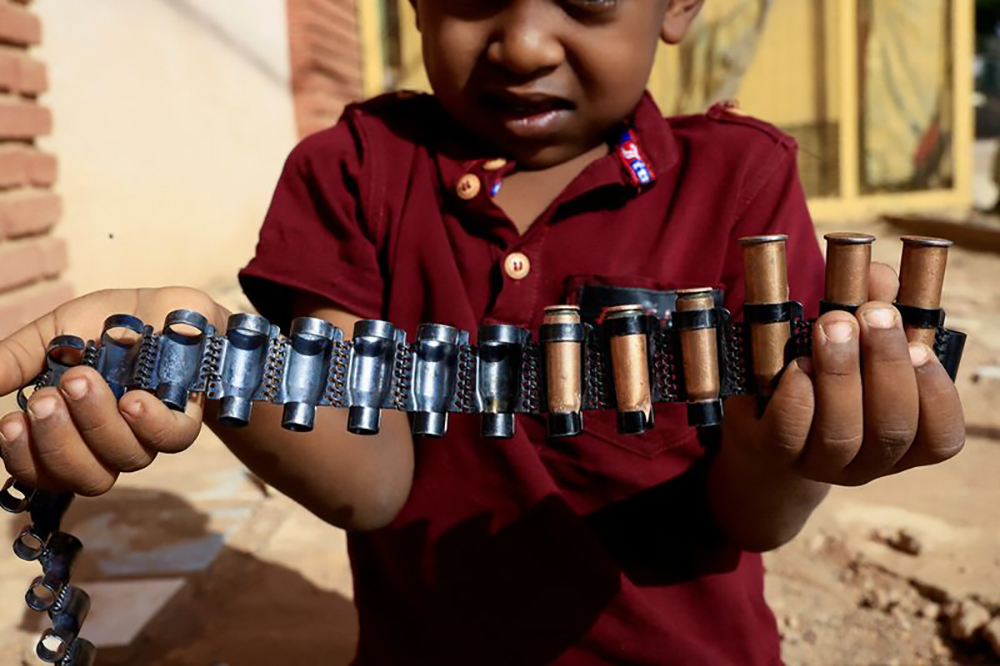
The Impact of War on Children: Who Provides Them with Psychological Support?
Thana Abdeen
Five-year-old Muzn was forced to flee with her family to the state of Kassala due to the war conditions and take shelter in a shelter center from the whizzing of fighter jets and the sound of shells and bombs.
Muzn found safety in this center, and she returned to her normal life as an innocent child after reassurance returned to her heart because she had overcome the causes of fear. But she doesnt know that there are humans who dont know the path to wisdom or reason.
That day, Muzn was playing in the courtyard of the center (school) with other children when suddenly, without warning, the sound of gunfire frightened Muzn and made her frantic, not knowing where to go. All attempts to calm her failed, even after explaining that the gunfire was in celebration of the marriage of one of the citys leaders in the mosque near the center that houses the displaced people from the Khartoum war.
After much effort, some young people managed to calm the girl down, while that person continued to fire, ignoring all pleas and requests that there were children who were terrified by his actions.
Elsewhere, a family is looking for treatment for children who have developed obsessions and suffer from involuntary urination after the war.
These situations confirm beyond doubt the need for psychological treatment for those affected by the war, especially children who are the first victims of it.
In psychology, it is said that post-traumatic stress disorders are most common in both children and adults, which necessitates treatments for children who have been exposed to these traumas after the war on April 15th.
Dr. Haitham Al-Khawad, a sociology consultant, says that children in Sudan, especially in conflict-affected areas, have experienced unexpected trauma, and the war was violent. They witnessed death and destruction, lost their homes and stability, and their needs. In addition to that, they lost their future, and the cessation of education made them face a bleak future, so they need cultural social incubators. But even these have become impossible due to the destruction of institutions working in this field.
Al-Khawad emphasized the necessity of psychological and social support for the affected children to overcome the trauma. He went on to say that even the childrens departure from the conflict areas to settled places was not safe, as transformations occurred in the childs mentality who witnessed those scenes, which will remain in his mentality. Treating all this requires a comprehensive psychological program for the child to return to his normal state.
Some organizations concerned with childrens issues have started holding workshops and programs aimed at integrating children into communities and providing them with psychological support through programs and projects in shelters.
The psychological impact was not limited to children in conflict areas, but also extended to those who dropped out of school since the outbreak of the war and now face a bleak future. They and their families do not know their fate and how to accept this situation. They also need psychological support, which we consider a duty of human rights organizations and civil institutions.

